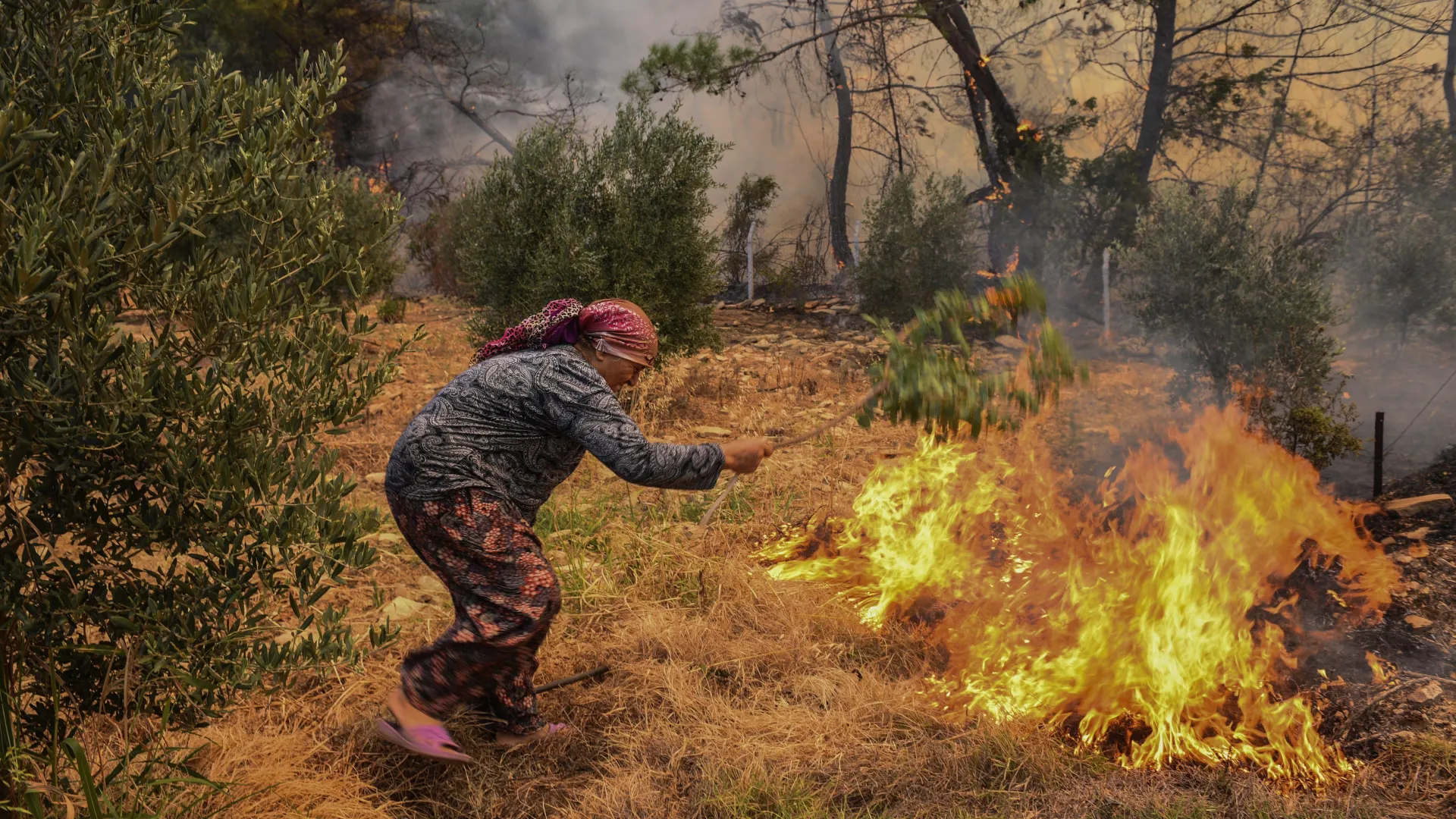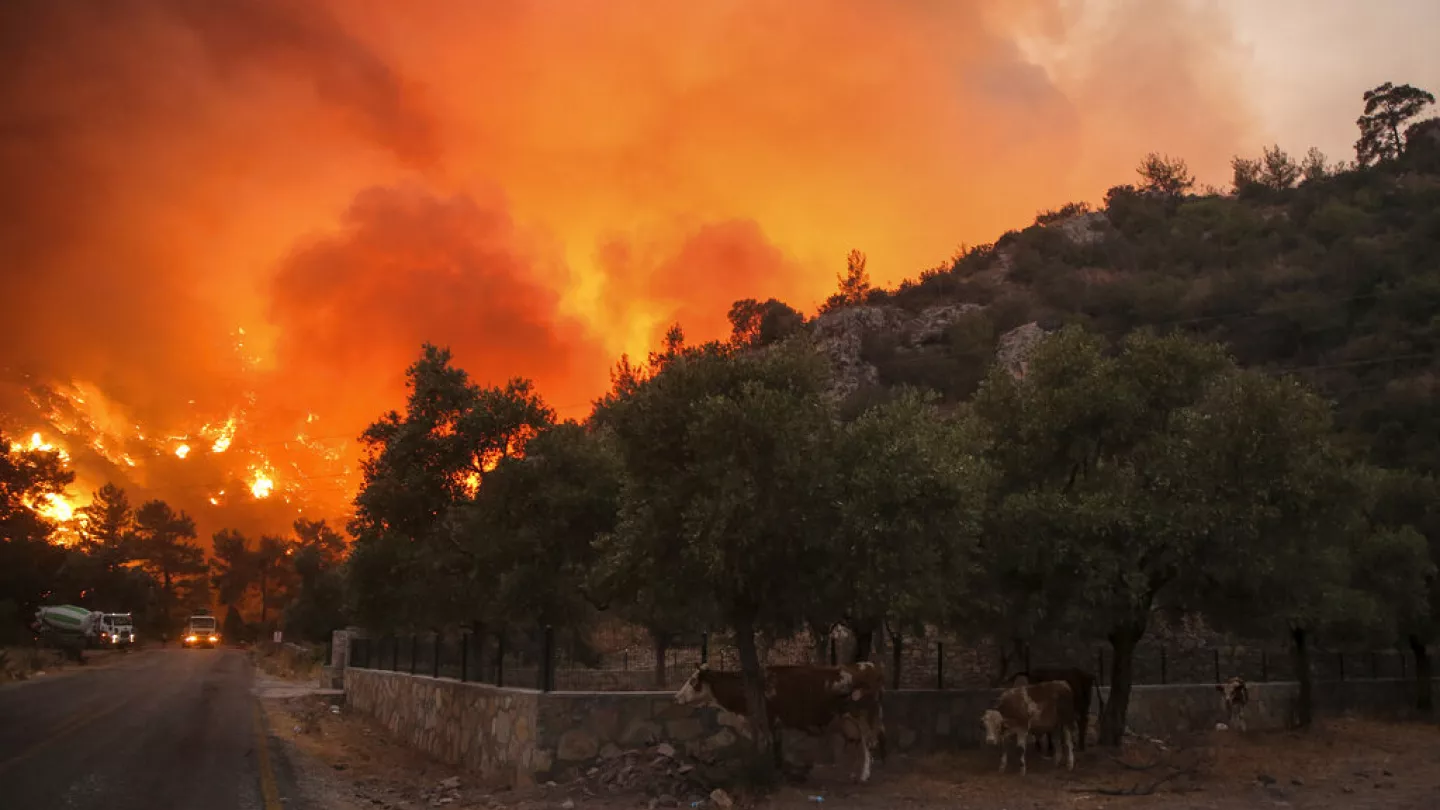New wildfires erupted along Turkey’s Mediterranean coast on Friday, prompting the government to declare Izmir and Bilecik provinces as disaster zones. The flames, seen dangerously close to high-rise apartments in Antalya, forced evacuations in city centers and surrounding areas such as Aksu and Manavgat.
Firefighters, supported by water-dropping aircraft and helicopters, scrambled to contain the fast-moving fires amid strong winds and scorching heat that closed major roads and threatened residential areas.
Fires Threaten Populated Areas as Turkey Mobilizes Thousands Amid Escalating National Emergency
Antalya Governor Hulusi Sahin reported that while most fires were under control, blazes in Aksu and Gazipasa remained active and threatening. The proximity of the fires to populated urban centers made the situation particularly alarming. Despite the intensity, there were no reported fatalities or injuries in the affected zones.
Temperatures reached a record-breaking 46.1°C (115°F), further complicating firefighting efforts. Interior Minister Ali Yerlikaya emphasized the severity of the crisis, highlighting the widespread disruption to public life.

Since late June, fires have led to the evacuation of 120 neighborhoods nationwide. More than 12,000 emergency personnel have been deployed, and 311 homes were destroyed or damaged. Temporary housing has been provided in three provinces.
President Recep Tayyip Erdogan described the wildfires as a national disaster, with 25,000 personnel, 27 planes, over 100 helicopters, and thousands of ground vehicles engaged in firefighting operations. The country remains on high alert as it continues to battle blazes across multiple regions.
Deadly Wildfires Spread Across Eastern Mediterranean Amid Record Heat and Climate Pressures
The wildfires have taken a deadly toll, with 13 people reported dead, including 10 firefighters and rescue volunteers killed in Eskisehir earlier in the week. New fires broke out in Adana, Mersin, Karabuk, and other regions.
Elevated temperatures, dry conditions, and high winds have fueled the spread and intensity of the fires, overwhelming local firefighting capacities. These conditions are consistent across many parts of the eastern Mediterranean, underscoring the widespread nature of this climate-driven crisis.
The fire crisis is not isolated to Turkey. Albania and Cyprus are also grappling with severe wildfires, with Albania deploying 1,000 personnel to fight flames amid temperatures soaring to 42°C (107°F). In Cyprus, fires have devastated entire communities, killing two and displacing many.
Officials in Cyprus pointed to climate change as a key factor in the fires’ speed and ferocity, citing prolonged droughts and extreme heat. Fire Chief Nicos Longinos defended his team’s efforts amid criticism, emotionally reaffirming their dedication to saving lives despite overwhelming conditions.











Leave a Reply